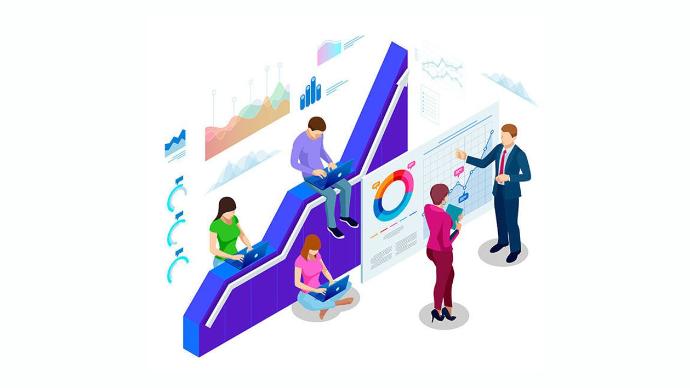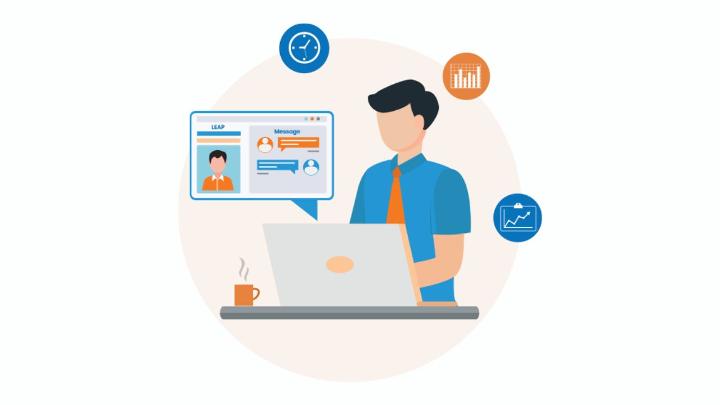Customer Relationship Management (CRM) has become one of the most critical tools for businesses today. With the increasing competition in the market, businesses of all sizes are looking for ways to improve their customer relationships and increase sales. This is where a CRM system comes into picture.
An integrated CRM system is a software platform that enables businesses to manage and analyze customer interactions and data throughout the customer lifecycle.
In this blog, we will discuss why CRM is important to businesses today.
1. Improved Customer Insight:
In this competitive era, customer is a king of market and understanding customer behaviour and gathering customer information on a centralized database will help you to improved customer insight including purchase history, communication history, and customer behavior.
A centralized data can be analyzed to provide valuable insights into customer needs, preferences, and behavior, allowing businesses to better understand their customers and tailor their products and services accordingly.

2. Increased Sales:
To identify the customer need and satisfy them with your tailored product and services a customized CRM workflow allows you to identify the specific sales processes, define stages, automate transitions, and set up notifications or approvals for efficient lead progression.
An important Lead management feature is to capture leads from multiple sources, assign them to sales representatives, and track their progress through the sales pipeline. Implementing a customized CRM system will automate lead management, allowing businesses to quickly respond to leads and convert them into customers.
3. Better Customer Communication:
Gathering all the informations through emails, phone calls, and in-person meetings providing businesses with a complete picture of their customer relationships at one place.
These improves customer communication and centralizes all customer interfaces by making it easier for businesses to keep track of customer interactions and respond quickly to customer inquiries.
4. Improved Customer Service:
When customers interact with your organization, they will trust that their information is accurate and reliable. This builds confidence and contributes to overall satisfaction.
Tailored marketing campaigns, personalized follow-up, and quick response times, ensuring that customer data is centralized and up to date, minimizing errors and inconsistencies. A customised CRM system improves customer service by providing a more personalized experience for customers.
5. Better Collaboration:
Primary objective of a manager is to track team performance, monitor activities, and measure progress toward goals.
A well integrated CRM system improves collaboration among team members and allows to share information, assign tasks, set reminders, and track progress, making it easier for teams to work together and achieve common goals.
It access and update customer data in one place. This shared database enhances collaboration by ensuring everyone has the most up-to-date information, enabling more informed and coordinated interactions with clients.

6. Increased Efficiency:
CRM system increases efficiency by automating repetitive tasks and streamlining processes. This includes tasks such as email marketing, lead nurturing, and customer follow-up, freeing up time for businesses to focus on more important tasks.
Utilize the reporting and analytics features of the CRM software to gain insights into sales performance, pipeline management, and customer trends. This helps identify areas for improvement, optimize sales strategies, and make data-driven decisions.
7. Better Data Management:
A CRM system centralizes all customer information, data backup, and disaster recovery mechanisms which makes it easier for businesses to access and analyze customer data and leads to better data management.
This contains customer contact details, purchase history, and communication history, allowing businesses to make informed decisions based on customer data.
Regular backups ensure that your data is protected in case of system failures, data loss, or other unforeseen events. This helps in maintaining data continuity and mitigating risks.
8. Improved Marketing Campaigns:
The CRM system improves marketing campaigns by analyzing customer data to target campaigns more effectively. By analysing list of data like customer behavior, preferences, and purchase history, allows businesses to create personalized targeted campaigns and tailor content to their preferences that resonate with their audience.
9. Better Customer Retention:
Customer retention is an important element for business to sustain in the competitive environment. Regularly reach out to customers with relevant information, updates, or special offers to stay engaged and top-of-mind.
By identifying valuable insights about customer data, tracking customer interactions, identifying areas for improvement, assisting businesses retain more customers, and improves customer loyalty.

10. Increased Revenue:
The ultimate business goal is to increase revenue and generate profit and maximize the wealth of an organisation.
With CRM you can increase revenue by automating tasks, providing valuable insights into customer behavior, and streamlining sales processes, leading to more closed deals and a stronger bottom line.
By resolving customer issues promptly and effectively, you can enhance customer satisfaction, which in turn leads to repeat business, referrals, and increased revenue.
Conclusion
Discussing all the important elements of CRM, starting from improved customer insight to increased sales customer communication and improved customer retention is centralised point to achieve targeted goals.
Proper designed CRM system aligned with business goal assists businesses of every type wheather it is small startups, developing or big firms, to improve customer relationships, increase sales, and boost overall sales and revenue. Resolve your pain points by discussing with us.